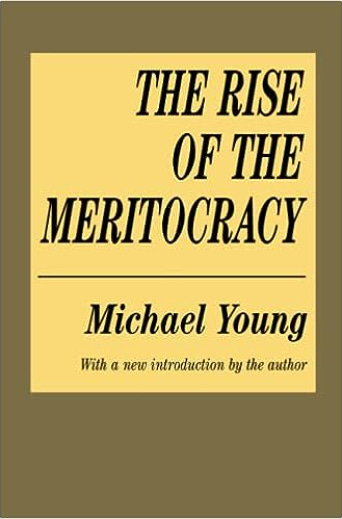The ideal of meritocracy is flawed
Here are two ideas from my book, Reconstructing Inclusion: Making DEI Accessible, Actionable, and Sustainable and other texts I leaned on in writing it. In addition, I’ve included one quote, a book recommendation, and a video or article that has inspired or influenced me and hopefully will resonate with you, too. (That’s ✌🏿+ 💡📚➕).
Page 106-107
A Meritocratic Ideal
"The ideal of meritocracy could be like D. H. Lawrence’s beliefs about the notion of ideals: “Our crimes and perversities are only possible because we have put ourselves in the service of ideals, and lost our souls in the process.” I am not sure if I would line up meritocracy with “crimes and perversities,” but I would agree in part that the obsession with the ideal of merit has created a belief among some that it is only the best of the best that are rewarded with the most. Meritocracy, while receiving a theoretical thumbs-up from most, is far from ideal.
In fact, if we look at merit-based systems such as the performance management and promotion systems of many corporations, we can easily see that the ideal of meritocracy is flawed. Even if we agree that the concept of meritocracy is viable and useful in organizational systems, doing so without exploring the dark side of the concept is shortsighted and too often leads to fostering inequity. Michael Young, who is accredited with coining the term, explores the dark side of the idea in his 1958 satire, The Rise of the Meritocracy."
Photo by Alexander Grey on Unsplash
Page 107-108
The Rise of Meritocracy
"Michael Young was a sociologist, social reformist, and educator. He is credited with drafting large parts of the manifesto “Let Us Face the Future” in 1945, which led to an increase in adult education, free secondary school education, the National Health Service, and universal social security.
The reforms also lead to the establishment of unions and labor laws. These laws reduced the hours that laborers worked and increased wages, giving working-class families a better quality of life and greater incomes. The result of all this was a marked rise in the lifestyle of the English middle and upper classes. Their opportunities for leisure expanded, as did the possibilities to invest in their children’s future, which resulted in their ability to move up the occupational hierarchy.
Ironically, the reform that Young’s work inspired was also a partial cause of the social inequities that he spent his life fighting. As more people became upwardly mobile, more children were left with greater inheritances. And with that, the possibilities for structural inequities via access to generational wealth grew exponentially, especially as educational opportunities and networks formed as an outgrowth of these conditions.
Young anticipated these unintended consequences, and The Rise of the Meritocracy was written as a warning of the possible negative outcomes of the reforms. The narrator in the story reflects that “nearly all parents are going to try to gain unfair advantages for their offspring.” Coupled with those advantages would be associating oneself with those who are of similar status via marriage, having access to opportunities for financial gain (i.e., jobs, capital, networks), and pursuing educational opportunities at elite educational institutions.
Young’s satire was not interpreted as the mockery of the English elites who believed that their privilege was justified. Instead, they anchored on to it as a neutral ideal. Rather than taking Young’s critique and shortcomings into consideration, meritocracy came to mean that outcomes were fair—even when the playing field was qualitatively imbalanced and reinforced to advantage one’s closest connections from the beginning.
Instead of weakening the notion, it was reinforced by those who historically were of greater privilege, to believe that their ongoing reaping of rewards over many generations was simply because they “deserved” it.”
💡A Quote
“One of the biggest problems with the world today is that we have large groups of people who will accept whatever they hear on the grapevine, just because it suits their worldview—not because it is actually true or because they have evidence to support it. The striking thing is that it would not take much effort to establish validity in most of these cases… but people prefer reassurance to research.”
― Dr. Neil deGrasse Tyson
📚A Book
Photo Credit: Amazon.com
The Rise of the Meritocracy, by Baron Michael Young
➕A Video
The Tyranny of Merit[ocracy], Michael Sandel | RSA Minimate
I hope this was helpful. . . Make it a great day! ✌🏿
In this episode of the ‘Reconstructing Inclusion’ podcast, Amri along with esteemed Philosophers, Dr. Subrena Smith and Dr. David Livingstone Smith, offer profound insights into the complex dynamics of race and its impact on society.






